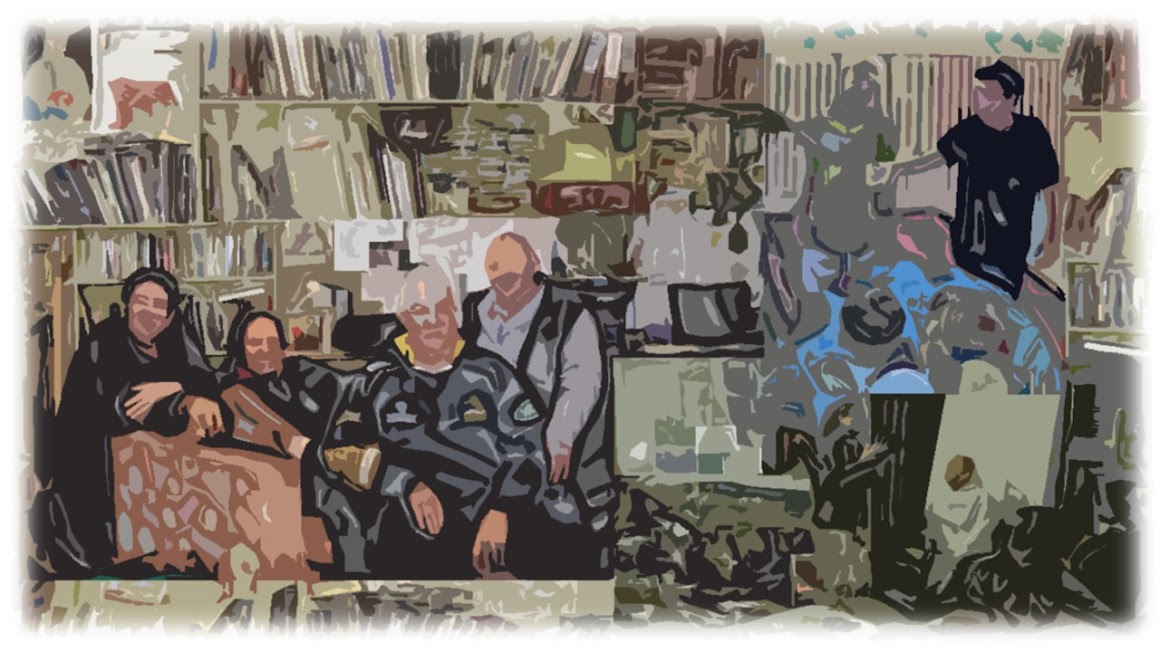In this erudite if somewhat loquacious review of Baz
Lurhmann's Great Gatsby I think the critic Ronan Wright has opined
correctly in his peroration but has not realised that his dismissal is in fact the
unconscious point of the movie.
It stands as a poignant symbol for the Post-modern age as
created by the ideal Post-modern director...superficial, technologically inflated,
razzle-dazzle masking a nihilistic desolation leading to a spiritual desperation dulled only by excessive behaviours; in short a perfect summation of
our age which T S Eliot captured so presciently during the early stages of the
20th century in his poem The Hollow Men. ..............................................................................................................
There's lots of froth and bubble in Baz Luhrmann's adaptation of this American classic, but not much soul.

The Great Gatsby
Directed by Baz Luhrmann
Starring Leonardo DiCaprio, Carey Mulligan, Joel Edgerton, Isla Fisher, Tobey Maguire
143 minutes
Master of CG carnival-camp Baz Luhrmann, director of Romeo & Juliet and Moulin Rouge and vaudevillian, brings his hallmark pyrotechnic pomp to bear in this nauseating adaptation of F. Scott Fitzgerald’s classically American story of wonder and lust.
Tobey Maguire (star of Spiderman) is Nick Carroway, an aspiring writer lured to the lethargy of perpetual promiscuity by socialite cousin Daisy Buchannan (Carey Mulligan) and her high society husband Tom (Joel Edgerton). Bewitched and bewildered by the enigmatic Gatsby, whose lavish parties are the toast of Manhattan, Carroway becomes the focus of the mysterious millionaire’s attention and a pivotal player in an intriguing game of cat and mouse. As the summer progresses, the enthusiasm of Carroway’s bedazzled bachelor turns to bitter disappointment and the seduction of what Fitzgerald called the “incorruptible dream” of a half-imagined happiness is confronted with a malignant materialism.
Though entirely unnecessary given its timeless themes and universal scope, Luhrmann uses every trick in the bag to bring Gatsby bang up-to-date, throwing everything but the kitchen sink at the material in the hope of leaving his mark on a literary monument. A scintillating soundtrack composed by rapper Sean Carter (aka Jay- Z) combines old-school cool with trendy tunes from Lana Del Rey with a brief sampling of Alicia Keyes’ iconic R&B anthem ‘Empire State of Mind’. The synthesis of the score with the subject material illustrates the salient symbiosis of the modern age, from 1925 to 2013, for the post-modern observer. As people and places evolve, our motivations remain the same.
Leonardo DiCaprio is perfect as the archetypal aspirant to the American dream rudely awakened to a living nightmare of habitual hedonism and neo-noir nihilism. In utter contrast to his role as a pitiless plantation owner in Quentin Tarantino’s controversial Western slavery epic Django Unchained, DiCaprio channels the blond-haired, blue-eyed innocence of his Titanic days as Jay Gatsby, a hopeful man hopelessly enslaved to sentiment.
Beneath the skin-deep superficialities of this lurid adaptation is F. Scott Fitzgerald’s enduring classic. The Great Gatsby reverse-engineers the spirit of frothy frivolity characteristic of the novel’s 1920s New York, and repackages it as a retro-reboot with 21st century street cred and a hip-hop soul.
As adaptations go it’s a glossy, well-acted advertisement for Fitzgerald’s novel and its greatest merit is compelling viewers to read the book. Classic screen adaptations, like Hitchcock interpretation of Daphne Du Maurier’s Rebecca and Peter Jackson’s The Lord of the Rings, add a dimension to the source material that only cinema can muster, daring the audience to imagine something better.
But in The Great Gatsby the novel’s core ideas occasionally pierce through the fog of the film’s glitzy effects and theatrical set-pieces but are inevitably reduced by Luhrmann to the residue of Fitzgerald’s genius and a lingering lament to what might have been.
Verdict: Luhrmann’s The Great Gatsby swaps heart and soul for sensory overload and up-market melodrama, the brilliance of Fitzgerald’s idea glimpsed in a caricature of something more profound.
Ronan Wright blogs about films from Belfast at Filmplicity.

No comments:
Post a Comment